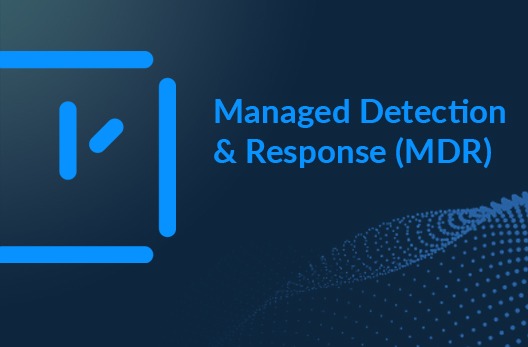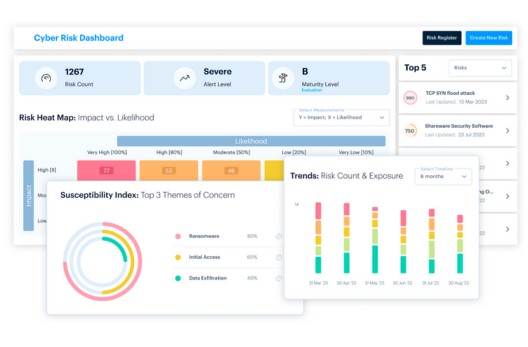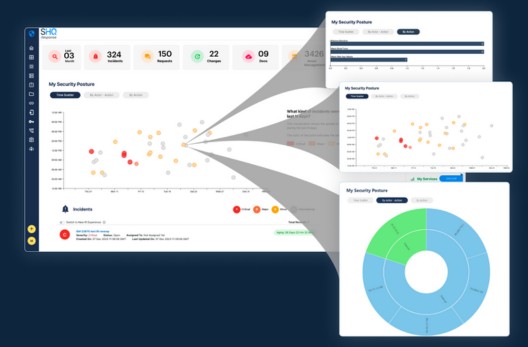Cloud Security • 10 MIN READ
How to Enhance Data Security for Business – A Checklist
by Eleanor Barlow • Mar 2023
The CIA security triad stands for Confidentiality, Integrity, and Availability. The purpose of this security model is to highlight three crucial areas of cyber security, to guide organisations on their journey to enhance their cyber security posture and, in doing so, their data security.
Confidentiality – A set of rules that limits access to data, and grants access to those approved. It keeps information private.
Integrity – Knowing that the information provided is trusted and accurate and cannot be altered or moved by the wrong people.
Availability – The right people should consistently have access when needed.
The CIA triad is crucial to enhance a business’s overall security posture. It is also necessary to stay compliant with security rules and regulations. Despite many security teams advertising complete cyber security, the reality is that cyber security is a continual process, not a one-off activity, that takes a trained team of cyber security analysts, the best technology, the right processes, and the willingness from all members to enhance their security posture, to defend against the ever-growing threat landscape.
What is Managed Data Security?
Managed Data Security is a method used to govern and control integration with IT management and additional security solutions. That way data protection is comprehensive and clear for all. It is used to protect business assets, including both structured and unstructured databases and traffic, as well as to prevent data leaks, and to maintain compliance across multiple environments.
‘Managed Data Security is an incredibly valuable tool to business, as it can be used to control and monitor auditable events from the chosen databases. This can be used, for instance, to monitor user behaviour in terms of the authentication against a database/databases, any inbound and outbound suspicious network traffic, and the detection of data exfiltration of large data transfers. By spotting potential malicious transfers quickly, businesses can respond to threats faster and, as a consequence, take actions to mitigate the threat and protect their data.’ – Ali Al-Rubaya, Senior Cyber Security Manager, SecurityHQ
Six Benefits of Data Security for Business
- Track data in a given business environment.
- Ensure visibility and analysis of all transactions. Track the movements of end users and spot unusual activity.
- Control and review policies, such as privileged user access and database change control.
- Detect and assess vulnerabilities.
- Activate and automate auditing processes.
- Build an integrated audit repository for diverse systems and database.
‘Your business collects, stores and uses critical data on a daily basis. Not only do businesses hold a vast amount of data but they have hundreds, sometimes thousands, of databases and sub-databases. A business will have a database for their address book, another for leads, another for locations, and they are all interlinked to form a single GUI (Graphical User Interface) that the user will then see on their screen. But for online business you also have finance, banking, payment, credit card information, legal records, and these are the crown jewels of any business.’ – How Managed Data Security Can Benefit Business
Checklist to Secure Your Data When Outside the Office
- Secure your Wi-Fi and Disable Bluetooth.
- Configure privacy settings.
- Use random passphrases for accounts.
- Keep social media private.
- Protect your identity – don’t overshare.
- Don’t save information on websites & browsers.
- Avoid unknown sites.
- Verify before you click on anything.
- Carefully back-up data.
- Report any suspicious activity.
To learn more about data security for business, view these top ten tips, with SecurityHQ’s latest infographic. ‘10 Tips to Protect Your Data’

![10 Tips to Protect Your Data [Infographic]](http://sidev.cloud-z.gr/wp-content/uploads/2021/07/Thumbnail-image-Tips-to-Protect-Your-Data-blog-copy.jpg)










